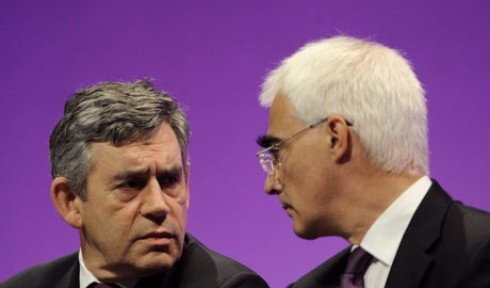Leader: Gordon Brown
Chancellor: Alistair Darling
Secretary of State for Business, Innovation and
Skills: Peter Mandelson
Minister for Business, Innovation and Skills: Pat
McFadden
Labour, in its manifesto is keen to stress all of the things that it has done over the past 13 years, although mainly in the past 18 months or so since he economic downturn. They say that their priority is to secure strong economic growth.
The labour party are very keen to trumpet the Business Link service as a success claiming that it ‘offers comprehensive practical advice to businesses, is now offering free access to interactive tools and model documents that are quick and easy to use. This help has already saved businesses an estimated £418 million in administrative burdens in the last year.’
They also pledge to cut the costs of regulation on growing businesses, especially the smallest. They claim to have created a new goal to cut the cost of regulation by a further £6.5 billion by 2015 – £1.5 billion in unnecessary paperwork and record-keeping, and £5 billion in the wider regulatory costs that impact upon business.
They are also developing a single online process for incorporating and registering a company, aiming for delivery in April 2011. They also want to make it quicker and easier for businesses to register commercial property and are planning on developing digital facilities at the Land Registry.
Key Manifesto points on Business
- An extension of the Time to Pay scheme, which allows business
owners to spread their tax payments out. - Further extension of empty property rate relief: commercial
properties with a value of less than £18,000 will be exempt –
according to Alistair Darling, this will affect 70% of
businesses. - The 1% rise in small
business corporation tax is still being delayed. - An increase on National Insurance contributions for
those earning more than £20,000. - A variety of investment funds, including £30m to help
industrial businesses in Teeside, a £500m Growth Capital fund to
‘invest specifically in small business’ and the extension of the
Enterprise Finance Guarantee (EFG), which will guarantee £500m
worth of loans to businesses on top of the £1bn already offered
this year. - More investment into clean technology: £160m towards the
innovation investment fund and the Carbon Trust’s VC scheme, as
well as £90m towards the European Investment Bank’s 2020 fund,
which finances green infrastructure projects.


